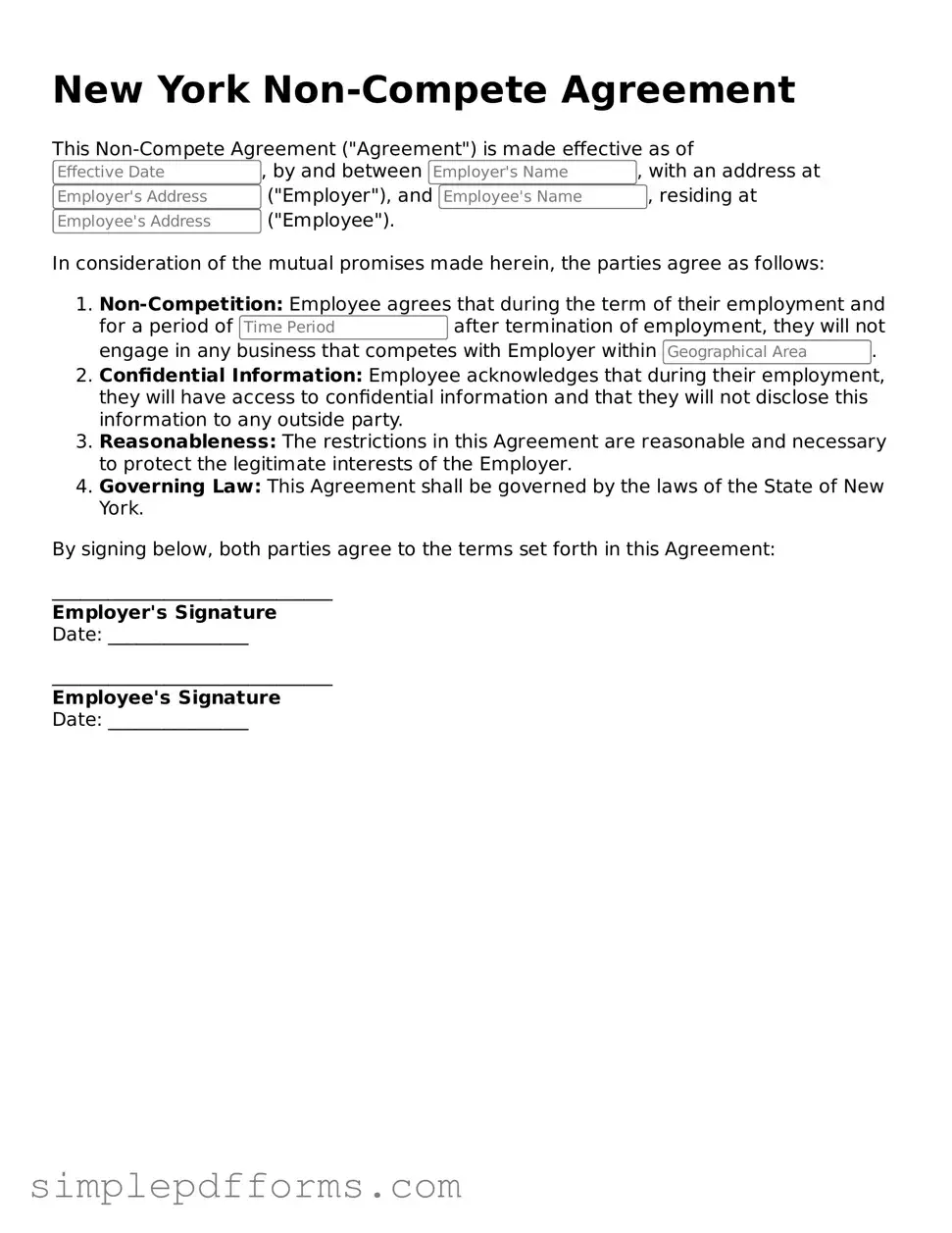Attorney-Verified Non-compete Agreement Document for New York State
A New York Non-compete Agreement is a legal document that restricts an employee from working for competitors or starting a similar business for a specified period after leaving their job. These agreements aim to protect a company's confidential information and trade secrets. Understanding the terms and implications of such agreements is essential for both employers and employees in New York.
Open Non-compete Agreement Editor Now

Attorney-Verified Non-compete Agreement Document for New York State
Open Non-compete Agreement Editor Now

Open Non-compete Agreement Editor Now
or
Get Non-compete Agreement PDF Form
Your form is waiting for completion
Complete Non-compete Agreement online in minutes with ease.